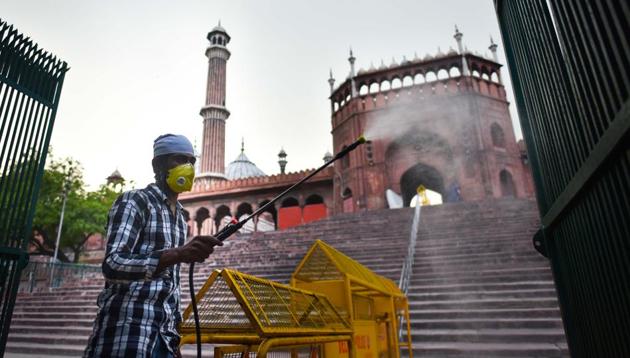Covid-19: What you need to know today
For the first time recoveries have exceeded active coronavirus cases in India. After all, with a case fatality rate of 2.8%, a little over 151,000 of those whose infections were reported in May will recover.
India ended Tuesday, June 9, with 131,253 active cases of the coronavirus disease, 134,657 recoveries and 7,748 deaths.

This is the first time recoveries have exceeded active cases. I have explained previously that the spate of infections seen in May — India added 155,668 new cases of Covid-19 in May, 56% of its total — means that we will see, equally, a spate of recoveries in June. After all, with a case fatality rate of 2.8%, a little over 151,000 of those whose infections were reported in May will recover (some of them already would have).
Still, even a mathematical certainty is worth celebrating at a time when everything looks uncertain, especially in Delhi, Mumbai, and Chennai. All three cities seem to be set for a torrid period of high caseloads that will put immense pressure on their infrastructure. Delhi has added an average of 1,218 cases a day between Sunday and Tuesday, Mumbai, 1,249, and Chennai, 1,184. The Delhi government expects the Capital to have 550,000 cases by the end of July. Mumbai’s administrators expect infections to peak in the next fortnight. And Chennai’s numbers continue to rise (the doubling rate of the city’s cases is 12.4 days).
Some of those who test positive in the three cities will be asymptomatic; others may have a mild infection and recover in a few days; but some will require hospitalisation. A few may require critical care. Even the current case loads in these three cities are straining their health care infrastructure to the point that it isn’t easy to find a hospital with a free bed, even for the well-connected.
Which is why I can’t understand why everyone wants to go everywhere, and all at once — malls, restaurants, markets, and places of worship.
It is widely acknowledged that India enforced amongst the most stringent and lengthiest lockdowns in the world to slow the spread of the coronavirus disease. The 68-day lockdown till June 1 — we are now in what the government calls Unlock 1.0, with many of the restrictions imposed during the lockdown having been eased — may have slowed the pandemic’s spread in India, and delayed the peak of infections, but it did not crush the viral disease the way New Zealand’s lockdown did (yes, I am aware New Zealand’s population is lower than Chennai’s).
We may be better prepared now — actually, and controversially, and contradictorily, anecdotes from Delhi, Mumbai and Chennai seem to suggest that isn’t the case, but we will let that be — but the number of Covid-19 cases is on the rise.
This isn’t true of these cities alone. An HT analysis, published on Wednesday, pointed out that six states in the hinterland that have seen the return of migrant workers are witnessing a sharp rise in the number of cases this month.
India, then, is exiting the lockdown at a time when cases are beginning to peak — and I’m hoping it will be a short-lived peak — but we now know what works against the disease. Not hydroxychloroquine or Remdesivir — the jury is still out on both — but a technique that dates back to the middle of the 19th century, washing with soap, and masks, and social distancing, and, for those who can live with it, isolation. Research led by scientists from the UK’s Cambridge and Greenwich Universities, and reported by Reuters on Wednesday said that “immediate and universal adoption of face masks by the public” can reduce infection rates to manageable levels.
While the risk of infection appears to be at its highest now, we know how to stay safe, so, why wouldn’t we do it?






